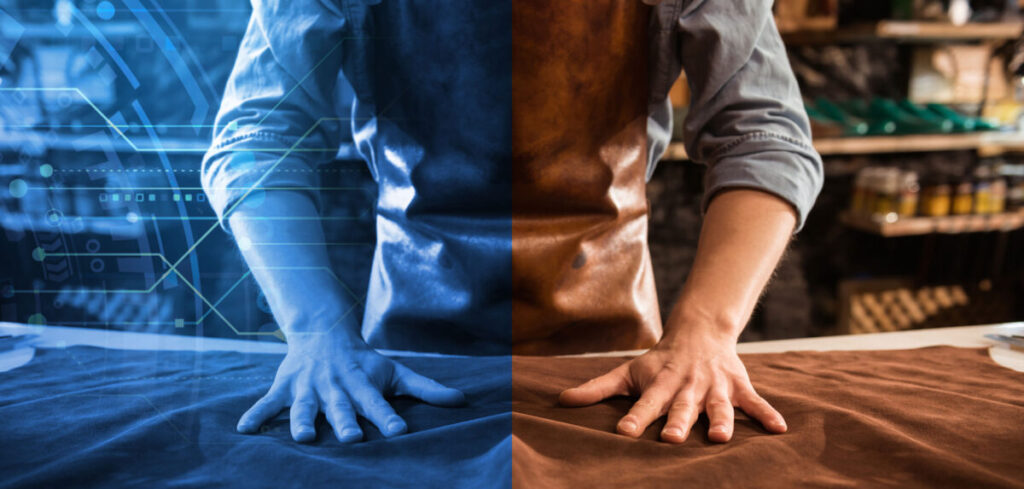Jaguar Land Rover has partnered with supply chain traceability provider Circulor, UK leather manufacturer Bridge of Weir Leather Company and the University of Nottingham to trial the use of traceability technology in the leather supply chain.
As well as tracking compliance, the digital process has apparently enabled Jaguar Land Rover to assess the carbon footprint of its leather supply network, working with Bridge of Weir Leather Company to trace its lowest carbon leather from farm to finished article.
As part of the Innovate UK-funded research, a digital twin of the raw material was created, allowing its progress to be tracked through the leather supply chain simultaneously in the real world and digitally. A combination of GPS data, biometrics and QR codes was used to digitally verify the movement of leather at every step of the process using blockchain technology. Jaguar says that defining the verification process has created a repeatable blueprint for tracing a single piece of leather at every stage.
Dave Owen, Jaguar Land Rover executive director of supply chain, explained, “We are currently restructuring our supply chain as part of Reimagine, with a focus on transparency and sustainability. The outcome from this world-first trial will allow us to further improve the sustainability of the leather supply chain around the globe, ensuring the complete traceability of raw materials from origin to vehicle. This is one step in our journey to net-zero carbon emissions across our supply chain, products and operations by 2039, enabled by leading edge digital capabilities.”
The technology could also be deployed to trace other commodities. Circulor is already using blockchain to improve the traceability of minerals used for electric vehicle batteries.



